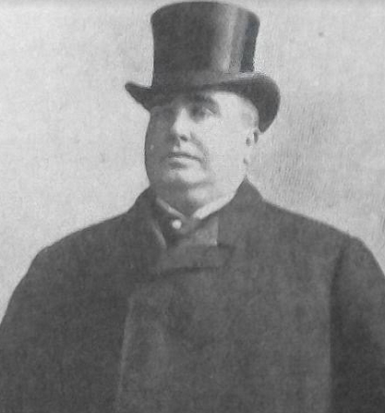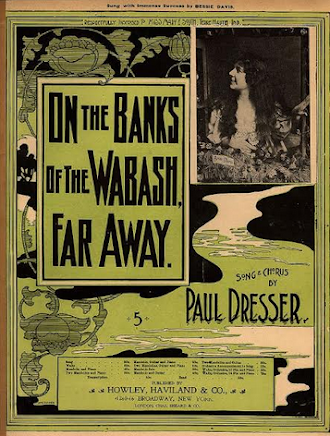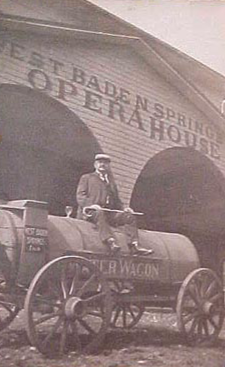Ever look out your window during a stay at West Baden Springs Hotel and have a moment of reflection? Maybe a jolt of inspiration as well?
You might be gazing on the same views and channeling the same types of emotions that inspired the composer of Indiana’s state song 125 years ago.
Chalk up this fun fact to add to the thick history book at West Baden Springs Hotel: It’s believed that Paul Dresser composed at least part of “On the Banks of the Wabash, Far Away” while he vacationed at West Baden in late spring of 1897.
This is going way,
way back in hotel history. Because this wasn’t the West Baden Springs Hotel as we know it today.
Back then, the hotel was a large, country-style inn. The modern-day West Baden Springs Hotel didn’t come along until a few years later in 1902 after a fire claimed the original structure. Around 1897, the major news of the day around hotel grounds was the recent opening of the multi-level bicycle track, the only covered track of its kind in the world.
Then Paul Dresser came along and used West Baden as the backdrop for his legendary composition.

Dresser grew up in Terre Haute, Indiana on the banks of the Wabash River, and his career as a musician and playwright took him to New York City and all throughout the country. But as so many of us do when we stray from our childhood roots, he reminisced about his Hoosier childhood in this song.
It’s believe that Dresser composed “On the Banks of the Wabash, Far Away” over the course of a few months — starting it in New York City, finishing it in Chicago, and working on it in between during a sojourn to West Baden.
The hotel newspaper, the West Baden Journal, documented Dresser’s arrival at the hotel in its May 11, 1897 issue: “Paul Dresser registered last week on a first visit to West Baden. Mr. Dresser is a gentleman of large proportions, genial and polished.”

Dresser was known to compose his songs in private during the evening hours. What better inspiration than the peace and solitude of a West Baden spring evening?
In a newspaper article published after Dresser’s death in 1906, Dresser’s process was revealed:
“One evening in the spring of 1897 the song writer arrived at West Baden, Ind. He was ill and tired and his mind was filled with evil forebodings. On his way across the state he had stopped at Terre Haute and visited the old home, where he had spent his early days. He saw the sparkling waters of the Wabash. He saw the moonlight reflected on the surface and he saw the candle lights twinkling in the cottages through the tall sycamores on the banks. The memories of the past came before him like a dream. His heart was filled with sorrow and tenderness. At West Baden he asked for the key to the theater, and passing through the long and gloomy hall he sat before the piano and in the fading light he played slowly the notes of his famous song, which came to him without effort. The words of the first verse, the chorus and the music were composed that night in a few minutes. On the next day he wrote the second verse, and the song, which was soon published, became popular from the start.”

Dresser was a frequent visitor of West Baden Springs Hotel, and on a subsequent visit years later, the hotel newspaper again confirmed that Dresser
“wrote the song in the heat of inspiration while he was a guest at the resort.” On a different visit, two songs written by Dresser were performed in a minstrel show at the hotel’s opera house, with Dresser in attendance.
“On the Banks of the Wabash” was released just a few months after being written, and quickly became a best seller not just in Indiana but nationally. The song earned Dresser more than $100,000 from sheet music sales — about $3.5 million today. It officially became the state song of Indiana in 1913, seven years after Dresser’s death.
And it all started from a room somewhere inside West Baden Springs Hotel — not too far away from the Banks of the Wabash, after all.
Oh, the moonlight's fair tonight along the Wabash,
From the fields there comes the breath of newmown hay.
Through the sycamores the candle lights are gleaming,
On the banks of the Wabash, far away.